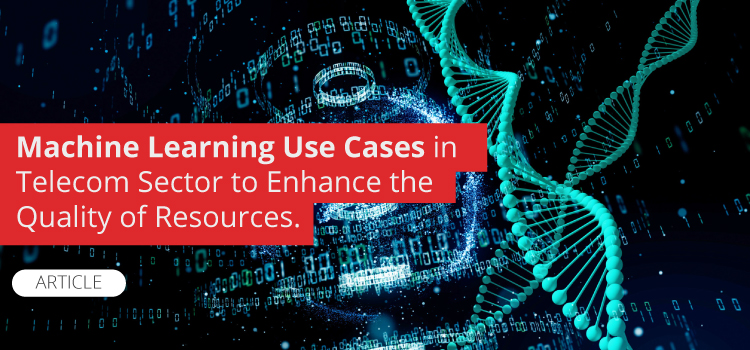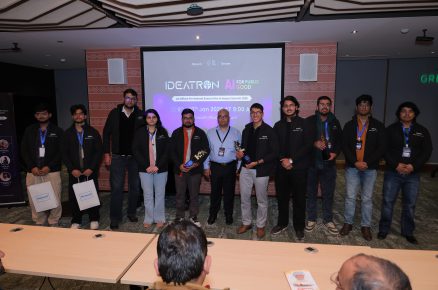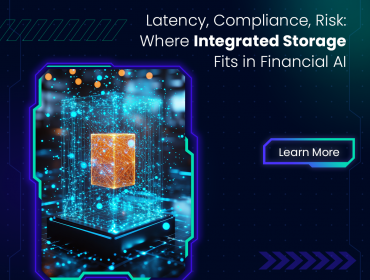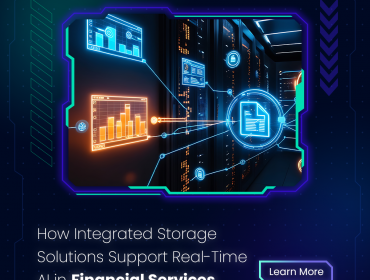Machine Learning use cases in the Telecom sector to enhance the quality of resources and critical performance matrix. There are different ways, which can help developers understand how their projects can benefit from Machine Learning models based upon deep Artificial Intelligence approaches. They use these models for analysis as opposed to simple regression methods which only provide insights that they like/need but do not allow them much flexibility when creating applications or services.
Machine Learning is an approach to programmatically learn from data with the intention to improve prediction and decision making. The method is especially compatible for text and data mining tasks. In general, Machine Learning is a specific subset of AI. It is a field of Computer Science and Artificial Intelligence which uses algorithms that simulate neural networks to get desirable properties. Various kinds of Machine Learning models have been built and used in the Telecom sector with the purpose of making better predictions using data available from the domain.
Machine Learning use cases in the Telecom sector
Analytics of Rich Communication Service in Telecom Industry:
Early-phase data analytics have become extremely important in the telecommunications industry. During the analysis of late-phase big data (especially cross-domain or vertical data), a gap arises in the cross-domain learning from temporal data to longitudinal data while the best end to end solution for big data analytics requires high-dimensional data. These are very expensive and very difficult to collect. But with Machine Learning coming into picture there are high chances to reduce the cost and apply analytics to improve the industry.
Radical Personalisation:
Radical personalization with the use of AI, Machine Learning technologies and big data helps in processing data from various sources to make up personal profiles. These profiles are fairly comprehensive, micro-targeted and are highly accurate. The more information about the customer, the better. With this personalized way of operations, telecom companies can automatically generate recommendations for every user about their buying behaviour and the prices that they want to purchase a service at. These recommendations can be used both online, on the website, on recommended product sections in the app, on suggestions made by a chatbot/emailers and offline such as phone calls, points of sale.
Resource Allocation:
With the assistance of technologies like Machine Learning and Artificial Intelligence, telecommunication companies have started automating resource management as well. ML is used in tasks such as classification, regression and density estimation. IOT softwares generate a fair amount of data and data driven ML, and use this to create automated solutions. ML helps in organising and classifying the data. It creates various mathematical and data-based models for optimum utilisation of resources.
Predictive Analysis:
AI-ML led predictive analytics are assisting telecom companies to provide better services by using data, high end algorithms and Machine Learning techniques to predict future results by referring to historical data. Hence, the operators can use data-driven insights to assess the condition of equipment, predict failure based on going patterns, and quickly fix problems with communications hardware, such as cell towers, power lines, data center servers, and even set-top boxes at customers convenience.
Therefore, network automation and insights will enable better analysis of the root cause and prediction of issues. In the longer run these technologies will support more strategic narratives, additionally creating new customer experiences and deal efficiently with emerging business needs. One such example is the way AT&T Global is using AI and ML to provide impetus to its maintenance procedures. They are using various technologies to expand their network coverage and utilize the analysis of video data captured by drones for tech support and maintenance of its cell towers.
To conclude, it is also beneficial to leaders of telcos spearheading Machine Learning initiatives that are attempting to create an impact on the global market. Having Digital Transformation at all cost is the motto of major telcos as the Telecom sector in India is fast evolving and is considered as one of the fastest growing industries. It is a multi-billion-dollar industry and is expected to grow at a CAGR of more than 15%. Therefore, the Telecom Industry is continuing to adopt Machine Learning approach for managing customers and improving customer experience. The Telecom Industry is expected to use many more emerging technologies to understand the consumer’s mind and recommend the services accordingly.












